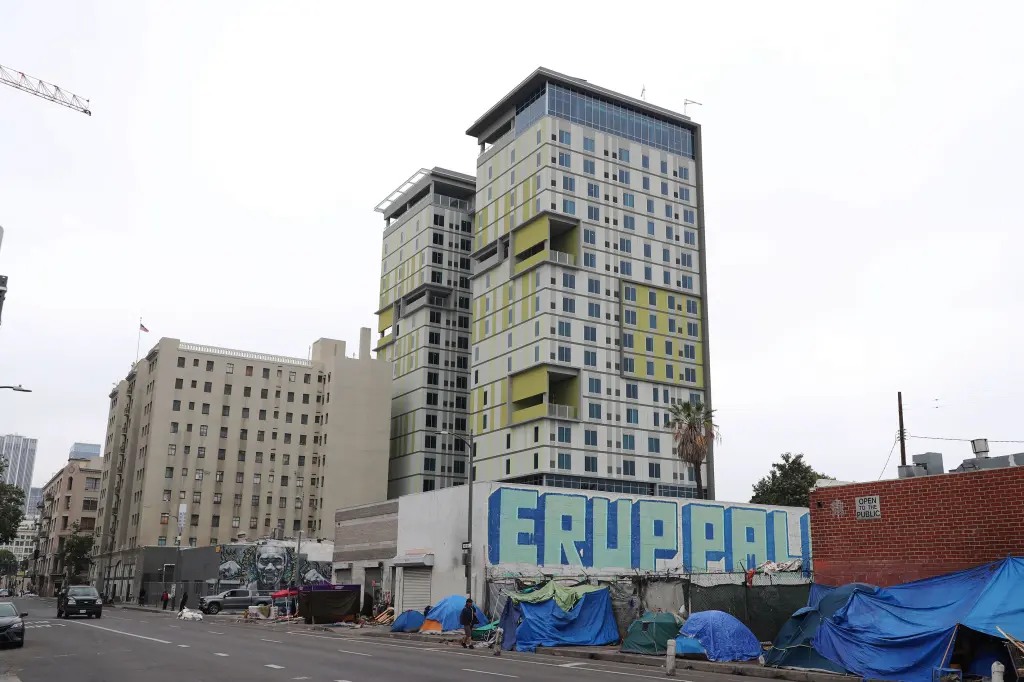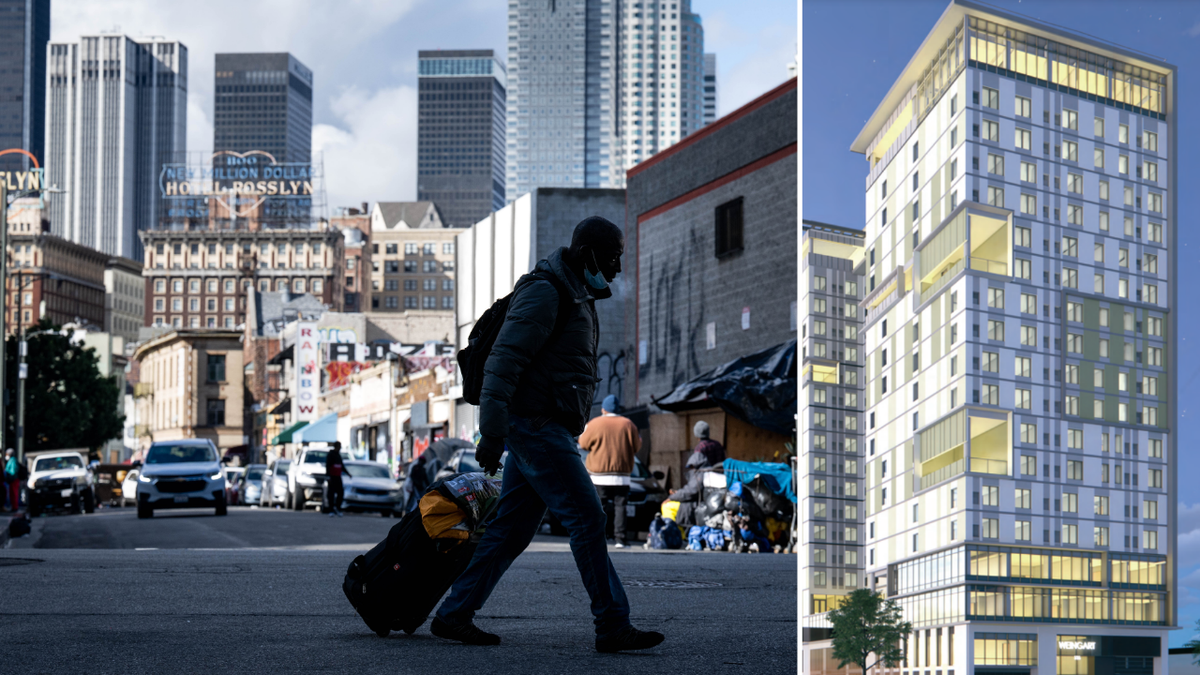Taxpayer-Funded $165 Million High-Rise for Homeless in LA Offers Luxury Amenities and $600,000 Units
Luxury Taxpayer-Funded Homeless Shelter in LA Features $600,000 Units with Skyline Views
In the heart of Los Angeles’ Skid Row a new taxpayer-funded high-rise homeless shelter is set to open featuring luxury amenities that make it resemble a hipster haven more than traditional public housing, according to the published article of NEW YORK POST. The 19-story tower part of a $165 million project by the Weingart Center Association includes 228 studios and 50 one-bedroom apartments each costing around $600,000 to build. This striking complex aims to provide a dignified living space for homeless adults offering breathtaking skyline views and a range of upscale facilities.
These amenities are designed to enrich the lives of the residents and offer them a holistic support system. Kevin Murray president and chief executive of the Weingart Center Association emphasized the goal of improving the neighborhood’s atmosphere and providing a supportive environment for its residents. This high-rise is part of a larger three-building initiative to address homelessness in Los Angeles. With its blend of practical support and high-end amenities the new shelter represents a bold approach to public housing, aiming to uplift and integrate the homeless community into the broader urban fabric.

Controversial $165 Million Taxpayer-Funded High-Rise for Homeless in LA Sparks Debat
Furthermore, the project’s development has sparked a broader conversation about the approach to addressing homelessness in urban areas. Critics argue that the high cost per unit approximately $600,000 is an extravagant expenditure of taxpayer money especially given the scale of the homelessness crisis in Los Angeles. They contend that the funds could potentially have been used to build more units thus housing a larger number of Americans. Despite these concerns supporters believe that providing high-quality living conditions is crucial for the dignity and rehabilitation of homeless individuals ultimately leading to better long-term outcomes.
